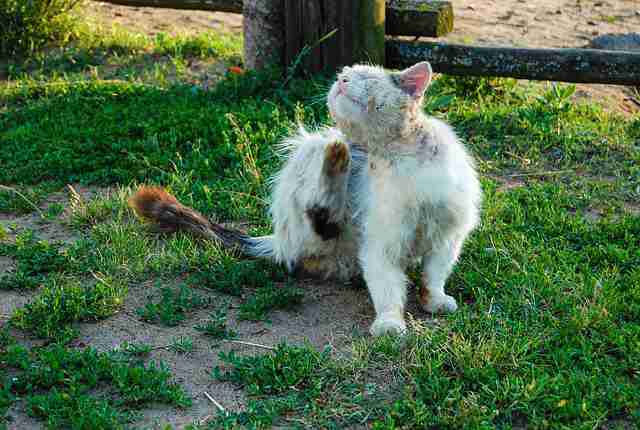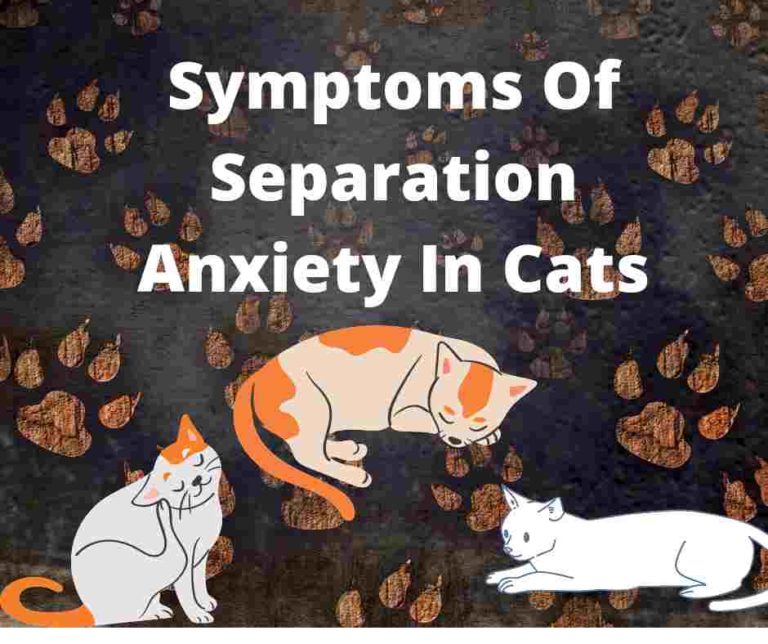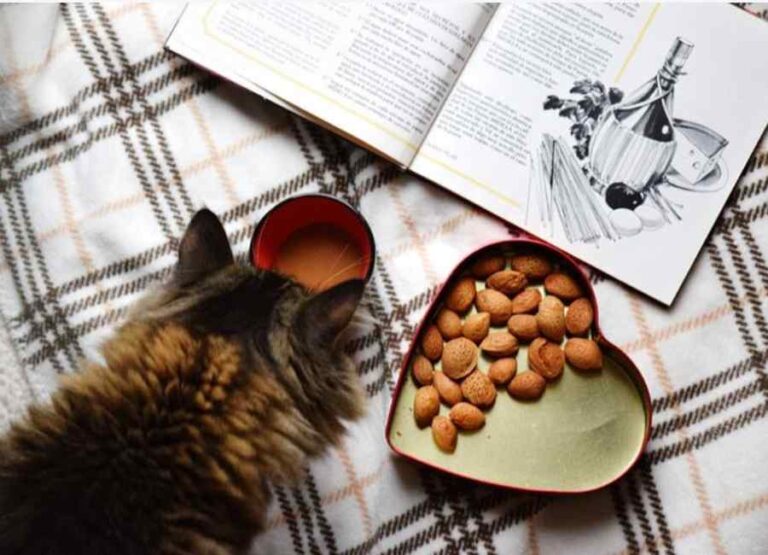14 Most Common Bengal Cat Health Issues You Should Know
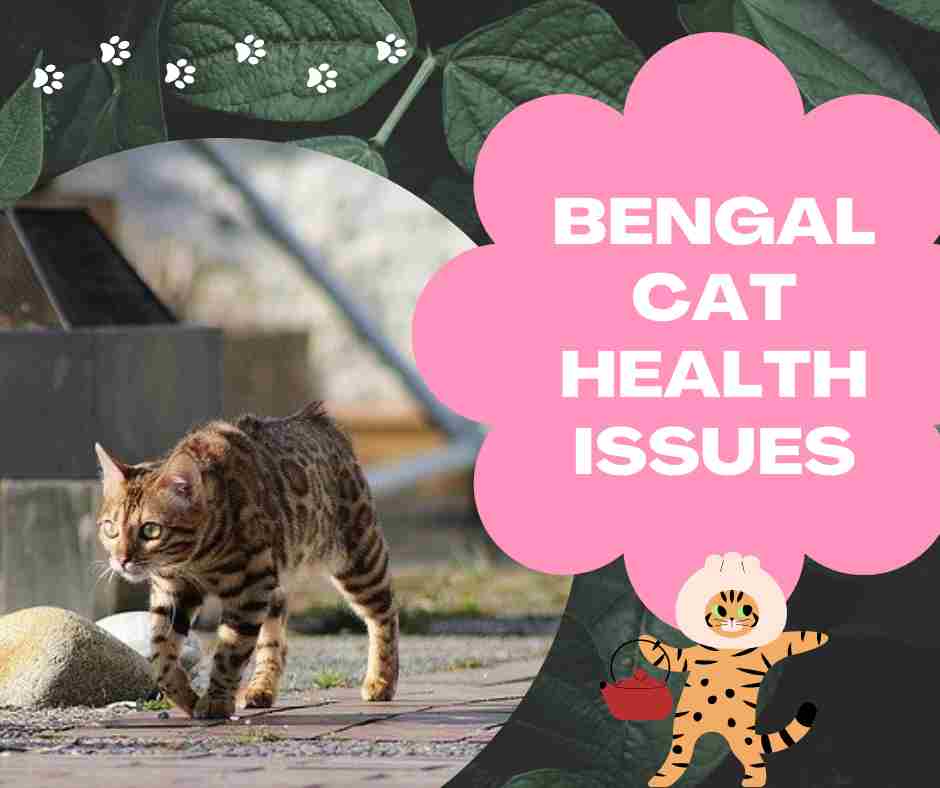
Most people ask about the common Bengal cat health issues, and in this article, we will discuss all the common Bengal cat health issues.
After reading this article you will be able to understand all the basic Bengal cat health issues.
Do not treat any of the health challenges listed here by yourself, always seek the help of a veterinarian.
Bengal cats are beautiful, intelligent cats with a wild appearance. They are one of the most popular breeds in the United States.
Bengal cats require a lot of care and attention. Their unique physical make-up means they can be prone to certain health issues.
They have a strong, muscular build for their size and their coat is sleek and glossy.
However, despite them being a healthy breed at first glance, they can be prone to developing some health issues that might not be as common in other breeds.
Bengal Cat Health Issues
Bengal cats are susceptible to a number of health issues. Here, are some diseases you may need to look out for with your cat:
Eye diseases
Many cat owners are surprised to find that Bengal cats have a higher incidence of diseases affecting their eyes, than many other cat breeds.
This may be due to their generally very active, hyperactive, inquisitive nature.
For example, their eyesight can be affected by a condition called myopia, which is a condition where the eyes don’t develop enough focusing ability to see clearly.
It can be mild, but it may need treatment by a vet. Myopia has a link to the retina, which means if your cat gets it, it can lead to a loss of eyesight.
The retina is the membrane lining the inside of the eyeball, receives light through the lens, and sends this information to the brain.
Some Bengal cats are genetically predisposed to progressive retinal atrophy, which eventually destroys the retina and renders the cat blind.
While there is no cure for PRA, cats with detached retinas might have vision saved through laser surgery. The retina might detach because of eye trauma or disease.
There is also a condition called glaucoma, where the pressure in the eye increases and damages the optic nerve.
This can lead to loss of sight. This can only be treated by an eye specialist, so please speak to your vet if you are concerned about your Bengal cat.
Here are some eye diseases associated with Bengal cats:
- Glaucoma
- Myopia
- Corneal Sequestra
- Cataracts
- Conjunctivitis
- Uveitis
- Retinal Disorders
Dental problems
One of the most common health issues that Bengal cats face is tooth problems.
Your Bengal cat may suffer from gum disease, which can lead to painful teeth, poor oral hygiene, and gum infections.
Dental problems in Bengal cats can also result in a thick, yellow-tinted plaque build-up that can make the mouth smell.
According to the Cat Cancer Trust, this is one of the few issues that Bengal cats suffer from and it is extremely uncommon.
They are also less likely to get mouth ulcers or cancer than other breeds, which is why it’s worth being aware of this risk factor.
Hip dysplasia
Hip dysplasia is a hip joint condition that causes lameness in the hind legs and makes walking difficult in Bengal cats.
While these joints do not function properly, there may be increased laxity and aberrant movement of the joint, which can lead to joint deterioration and severe osteoarthritis over time.
Patellar Luxation can also affect Bengal cats and this is when the patella (knee cap) shifts out of its usual position.
This causes limping or trouble walking on the back legs. Surgery may be required to remedy the issue.
Hip dysplasia is widely recognized in several cat breeds and not just in Bengal cats this is also known to have a high heritable component.
Diabetes
Diabetes is a condition where the body’s levels of blood sugar (glucose) rise too much.
It is a serious condition as it can lead to loss of vision, kidney failure, and even death. According to Diabetes UK, up to 50% of Bengal cats suffer from this condition.
Signs of diabetes in a Bengal cat include:
- Extreme thirsty
- Loss of appetite
- High blood glucose levels
- Low urination
- Easily fatigued
- Lethargic Fatigue
- Extreme muscle twitching.
Kidney disease
Cats are more prone to kidney disease than dogs.
The reason behind this is that cats have more kidney enzymes in their blood and most of these enzymes are expressed in their urine.
Causes for kidney disease in Bengal cats include chronic vomiting, lacerations on the kidneys, and kitty litter defecation.
In severe cases, kidney disease can cause kidney failure. It can be prevented by getting your Bengal cat vaccinated and spayed.
Rare dermatological problem
Like all other animals, Bengal cats have their own unique skin problems.
However, one common dermatological problem that Bengal cats may suffer from is cyclic vomitus.
It’s basically continuous vomiting that can occur for no apparent reason.
Thyroid problems
One of the most common health issues affecting Bengal cats is thyroid problems.
This can have a direct impact on their weight, which then may lead to various health issues.
Thyroid problems can cause hyperthyroidism or hypothyroidism in the long run.
The issue can cause weight gain, decreased appetite, vomiting, and depression among other symptoms.
The thyroid gland is responsible for producing hormones to maintain the proper functioning of the human body. It assists in managing the metabolism.
Liver disease
One of the most common health issues associated with Bengal cats is liver disease.
Although the liver disease occurs in other cat breeds, Bengal cats are known for the fact that their livers tend to be quite small.
This is one of the main reasons why the breed is more prone to developing liver disease.
The cause can be unknown, and there are no clear-cut indicators to link an individual cat’s liver disease to a particular diet.
However, there are some common causes of liver disease in Bengal cats.
These include feline viral hepatitis, genetic liver disease, and over-consumption of alcohol and toxic substances.
Gastrointestinal diseases
Bengal cats can develop gastrointestinal diseases.
The most common causes of these diseases are intestinal parasites and gastrointestinal parasites.
The difference between the two is the length of the lifespan that each affects a cat.
Bengal cats that are affected by gastrointestinal parasites live shorter than those affected by intestinal parasites.
Hyperthyroidism
All cats suffer from the common cold and cat lice, but hyperthyroidism is a serious condition in which the thyroid gland secretes large amounts of hormones that create the symptoms of hyperthyroidism.
This disorder can cause hyperactivity, nausea, vomiting, an enlarged heart, and even death if left untreated.
It is usually found in females aged between two and six years old and is especially common in young and elderly cats.
It is an incurable disease but has no effect on the quality of life of the cat.
Feline Infectious Peritonitis (FIP)
This is one of the most shocking and heartbreaking health issues to see in Bengal cats.
FIP, which is a fatal disease, is caused by a bacteria called Feline Infectious Peritonitis.
A kitten in the first six weeks of its life is likely to contract this illness. For more information check here.
Allergies
Allergic reactions to common foods like rice, wheat, and corn are common in Bengal cats, and this can lead to dermatitis or severe eye problems.
The health issues caused by allergies could include ear infections, eye infections, polydactyly (extra digits), and itching.
Symptoms of allergic reactions are variable and can include a generalized skin rash or severe itching.
If you suspect your Bengal cat has food allergies, talk to your vet about getting them tested.
Treatment involves decreasing or eliminating the foods causing the allergies.
Treatment with allergy eye drops is also used to ease the symptoms of allergies.
If the allergies are a food allergy, the food the allergic cat is allergic to is typically a high-fat diet.
Heart Disease
Bengals are not known to have a higher risk of heart disease than any other breed, but it’s still very important to keep them healthy.
It is more common in female Bengal cats, who are more prone to pregnancy and at some point, during that process.
Kitten females are also prone to more serious health issues, such as feline leukemia, which can be treated by a cat carrier.
If you are in the UK, get your kitten vaccinated against this serious disease.
Like many other purebred cats, Bengals can be prone to heart disease.
Which is a condition that begins when the arteries supplying blood to the heart become narrowed and clogged with cholesterol plaque deposits.
This is a serious issue because it can cause chest pain and dangerous irregular heartbeats, among other symptoms.
Many Bengal cat owners see their cats suffer from severe hairball-related problems. And this comes as a result of the cat grooming itself.
The main cause for hairball-related problems is a problem with the gastrointestinal system, where ingested hair or fur forms a ball.
Most Bengal cats that suffer from liver problems tend to vomit their furballs and have infections in the gut they might vomit hairballs to clear the infection.
Bengal cats that have problems digesting food (a condition called pancreatitis) may suffer from hairball-related problems as well.
To treat hairball-related problems in Bengal cats when they occur, be sure to check with your veterinarian to prescribe medication.
How to deal with these health issues
Staying away from foods that might cause these health problems is the first step to ensure that you do not trigger an illness for your Bengal cat.
While Bengal cats are superb at digesting their food, they do tend to develop gastric problems when their food is not properly handled or if the food is not heat treated.
In order to keep your Bengal cat happy, ensure that all food is cooked at a normal temperature and that the ingredients are not infected.
Most brands use spices that could cause illness and ensure that you read all labels before feeding your cat.
One of the best ways to deal with all the listed Bengal cat health issues is always to go for regular medical check-ups.
If you notice any funny changes with your Bengal cat, just contact your vet.

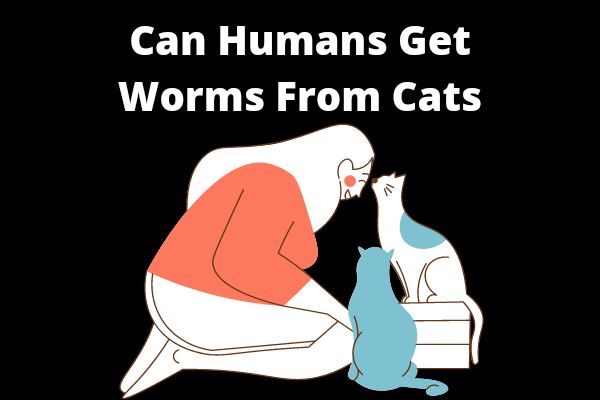
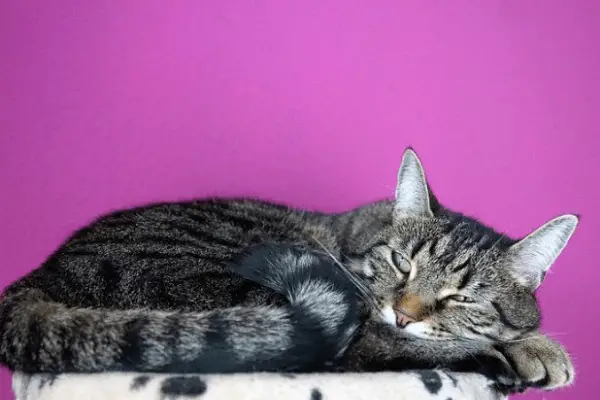
![How Do Cats Get Bacterial Infections [12 Hints] How Do Cats Get Bacterial Infections](https://petcreeks.com/wp-content/uploads/2021/03/How-Do-Cats-Get-Bacterial-Infections.jpg)
